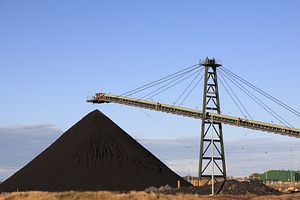Climate change looks to be back on the global agenda after China and the United States, the world’s two largest carbon dioxide emitters, recently renewed efforts to reduce their carbon emissions. U.S. President Barack Obama announced last week that the Environmental Protection Agency would target a 30 percent cut in carbon pollution from national power plants by 2030. Days later, a senior advisor to the Chinese government said that China was also considering setting an absolute cap on its carbon emissions from 2016.
But the flurry of activity has left Australian Prime Minister Tony Abbott in an awkward position as the government’s climate policy comes under renewed criticism ahead of a planned meeting with Obama in Washington later this week.
The Coalition government is set to repeal the previous Labor government’s fixed carbon pricing scheme in July and introduce its own Direct Action Plan over an emission trading scheme favored by the opposition. The Emission Reduction Fund, as the central element of the plan is known, will provide direct financial incentives for businesses to reduce emissions, for instance, by purchasing emission reductions by auction or receiving credits for certain activities.
But considerable uncertainty remains over how the fund will be implemented, with some questioning the basic rationale of using taxpayer money to try to alter the behavior of companies. “Paying polluters to reduce their emissions is morally and ethically flawed,” said Ian Dunlop, former chairman of the Australian Coal Association.
In a review of Australia’s greenhouse gas emissions reduction goals, the government’s advisory panel, the Climate Change Authority (CCA), recommended that “Australia target a minimum reduction of 15 per cent in greenhouse gas emissions – compared with 2000 levels – by 2020.” Such a target, the report concluded, “would constitute a responsible response by Australia at this time to the challenges of climate change.” The government, however, is currently committed to achieving only a minimum 5 percent reduction by 2020.
With Australia set to host the G20 summit in Brisbane in November, Abbott is facing growing pressure from the U.S. and Europe to include a more prominent role for climate change in the G20 agenda, including speculation that Obama may raise the issue in his meeting with the prime minister, according to The Australian.
The Brisbane summit will take place shortly after the Climate Summit in New York in September and ahead of the 2015 United Nations Climate Change Conference in Paris, which aims to achieve a universal agreement on climate change, increasing the likelihood that climate change will be on world leaders’ minds.
However, the prime minister has said he remains committed to the G20 agenda of promoting strong economic growth and employment. “I’d be surprised if climate change doesn’t come up as part of the G20,” Abbot told reporters last week, “but the focus of the G20 will overwhelmingly be our economic security.”
Some of that focus may be lost, though, if other countries seize the initiative. Kobad Bhavnagri, Australia head of Bloomberg New Energy Finance, warns that “Australia risks being embarrassed by global leaders who are determined to take action, like German Chancellor Angela Merkel and U.S. President Barack Obama.”
This week’s meeting between the two leaders could serve as an early indication of America’s commitment to reenergize international efforts to tackle global warming. If so, it will be interesting to see how Abbott reacts given the looming G20 summit and whether the renewed attention on climate change at the global level shines a spotlight back on the government’s policies at home.

































